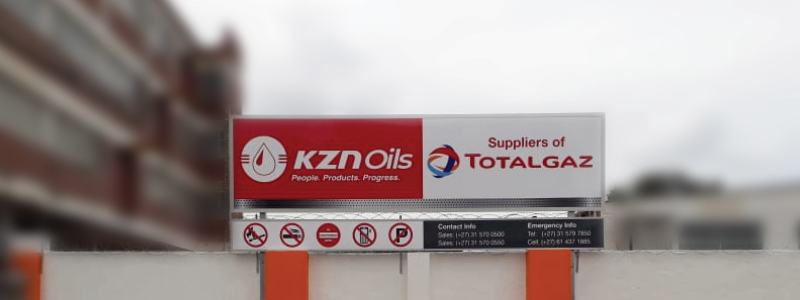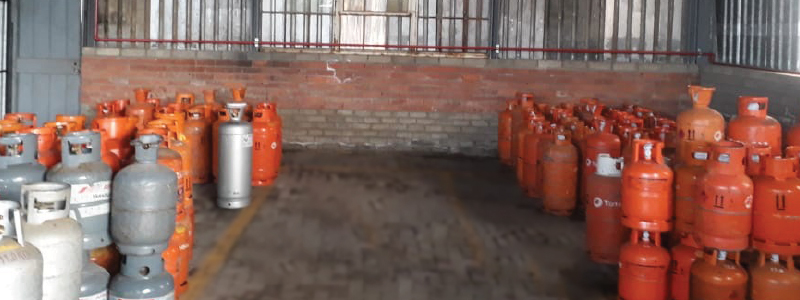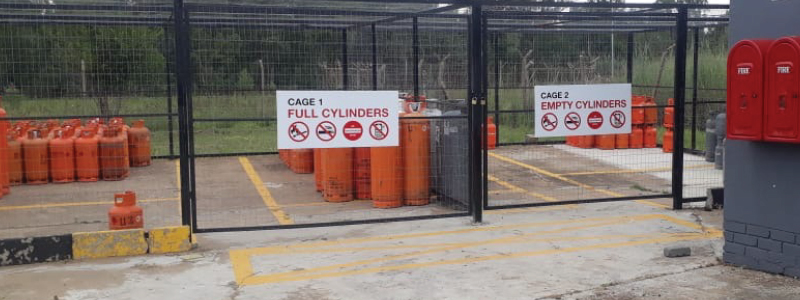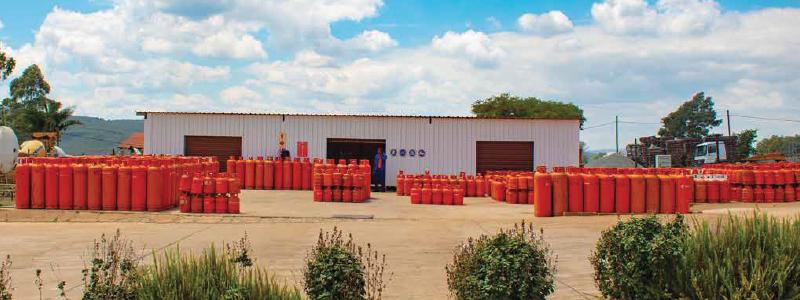KZN Oils Gas

Liquid Petroleum Gas
Bottled gas is available in a wide range of cylinders to fit any appliance. We offer a large range of cylinder sizes (5, 9, 12, 14, 19, 48kg), giving us the edge in catering for all kind of LPG installations.
Our cylinders not only provide energy to industrial and agricultural facilities, public institutions, hotels, restaurants and catering units but are also equally suitable in the home for baking, cooking and heating.
We have depots situated in Durban, Harrismith, Ladysmith, Newcastle and Greytown.

Williams Rd Depot
Fuels┃Lubes┃LPG┃Taxi Spares
Tel (+27) 31 306 1340
wrd@kznoils.co.za
51 Khuzimpi Shezi Rd, Congela
Harrismith Depot
Fuels┃Lubes┃LPG┃Taxi Spares
Tel (+27) 72 674 7275
harrismith@kznoils.co.za
81 Mckechnie St, Harrismith


Ladysmith Depot
Fuels┃Lubes┃LPG┃Taxi Spares
Tel (+27) 36 631 0481
ladysmith@kznoils.co.za
41 Diamana Road, Ladysmith
Newcastle Depot
Fuels┃Lubes┃LPG┃Taxi Spares
Tel (+27) 34 312 1625
newcastle@kznoils.co.za
22 Van Der Bijl St, Newcastle


Greytown Depot
Lubes┃LPG┃Taxi Spares
Tel (+27) 33 413 2082
admin1@kznoilsgas.co.za
4 Dr. Elliot Street, Greytown
LPG Distillation Process
Where does LPG come from?
LPG has 2 main origins. Around 60% of the gas comes from the extraction of natural gas and oil from the earth. The other 40% is produced through the refining of crude oil. Traditionally, LPG was wasted and burnt off as an unwanted by-product of the production of other fuel sources. But, now it’s recognised as a versatile low-carbon fuel that can provide an exceptional amount of energy.
Natural gas processing
Commercial natural gas is made up primarily of methane, but also includes a mixture of several gases and liquids, including propane and butane. So, before natural gas is marketed, some of the natural gas liquids, including LPG, are separated out.
Crude oil refining
LPGs are produced at various stages of refinement, such as atmospheric distillation, reforming and cracking. LPG accounts for only 1-4% of crude oil processed, dependent on the type of crude oil, the oil refinery and the market values of LPG.
Distribution process
After the oil and gas production rigs process the gas, the LPG is transported from the production site to large storage terminals, where it is kept at the ideal temperature.
The LPG is then delivered by road, coastal tanker or pipeline to filling plants, and smaller storage areas for distribution. At these smaller storage facilities, the LPG is transferred to pressurised tanks.
Once in the cylindric tanks, LPG can be transported anywhere it is needed. Typically, it will be bought by retailers and fuel suppliers and sold to individual customers. The LPG can then easily be used to fuel cars, trucks and even lorry fleets, offering a more sustainable and cheaper fuel alternative.
Acquisition of Greytown Gas
Greytown Gas was acquired in August, 2018. And Mr. Ravi Kistnasamy was appointed as the General Manager. Ravi boasts 15 years of experience in the industry.
The purpose of acquisition is to build on the company vision to be the energy provider of choice.
The strategy is to utilize synergies across the business units and to maximise share of wallet.
Depot Tanks / Filling Depot
LPG is delivered from the refinery & transferred to the bulk storage tanks at the depot.
The delivery tank & the depot storage tanks must be soundly earthed before transferring the LPG.
Each tank has a capacity of 11 500 tonnage. Converted to litres it will equate to 22 000 litres.
Cylinder Preparation
Cylinders are checked for defects. Cylinders are washed and cleaned. Once filled, cylinder nozzles are completely sealed.
Refill Station
A variety of cylinders are filled, ranging from 9kg, 14kg, 19kg and 48kg.
Cylinder Filling
Cylinders are filled using carefully calibrated machines. The time taken to fill a cylinder is less than a minute.
Each cylinder has a unique tracking number, to verify it has been completely filled. In South Africa LPG is a 60:40 mix of Propane and Butane.
Propane has a lower boiling point and so is preferred in climates that go below zero.
Distribution
Cylinders are loaded daily for delivery.
Load = weight of gas + cylinder weight = 2 x weight of gas.
Some loads are up to 5 tonnes so we require a 12 tonne truck.

Sign up now to our newsletter. It’s FREE!
Keep up with our latest projects and product offerings.
